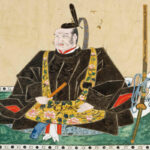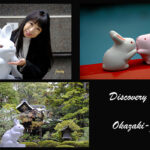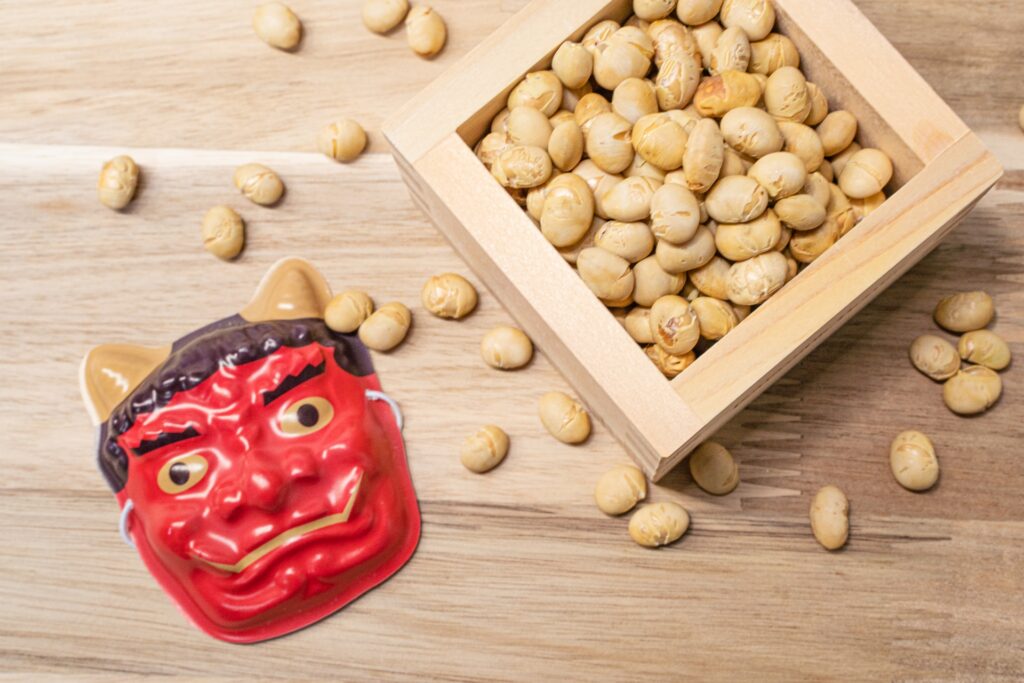
。
Everyone in Japan loves Setsubun (節分). Unlike the big holiday of New Year (Oshougatsu — お正月) which requires days of work and preparation, or the “what are we supposed to do?” holidays of Green Day (Midori no Hi — 緑の日) and Ocean Day (Umi no Hi — 海の日), celebrating Setsubun is a lot of fun.
Setsubun is celebrated every year on Feb. 3 (except when it isn’t.)
In a custom called mamemaki 豆撒き(scattering of beans), the head of the household throws soybeans out the front door while shouting, “Oni wa soto! Fuku wa uchi!” (鬼は外! 福は内!) — Oni out! Good fortune in!
One of the family members might even wear a mask to dress up as an Oni — a Japanese horned ogre that looks like an emoji ?. Then the door is shut and the Oni and evil spirits are locked out and good fortune locked inside for the year.
。
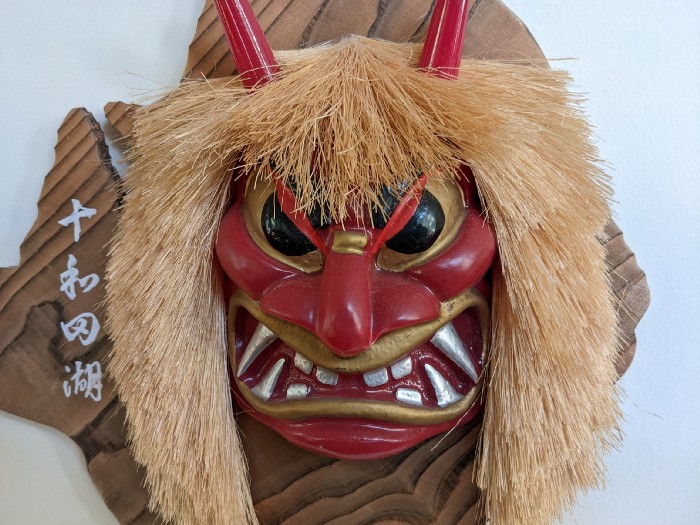
。
In a newer custom called ehou-maki (恵方巻) — “lucky direction roll”, we eat an uncut maki-zushi (sushi handroll) while standing in the year’s direction of good luck. I’m not sure exactly what the meaning of this custom is other than to bring good fortune to the sushi restaurants that came up with the idea.
。
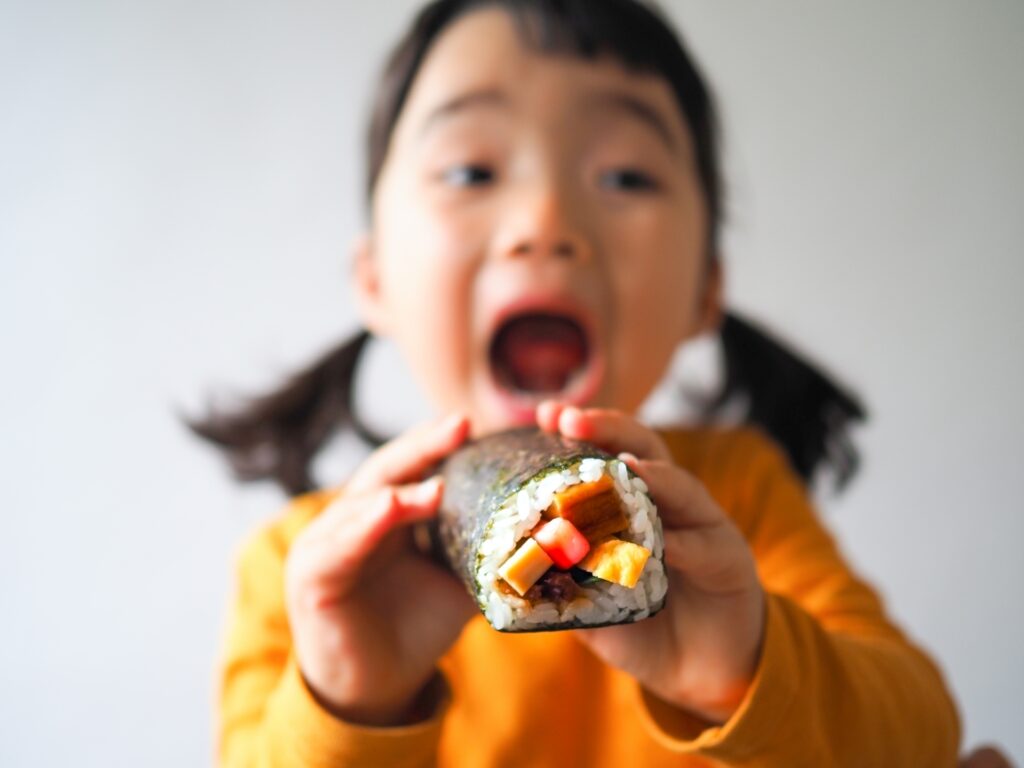
。
Simple, fun, and delicious. What more could you want from a holiday? A day off from work? Sorry, no break from the daily grind for throwing beans.
・・・
。
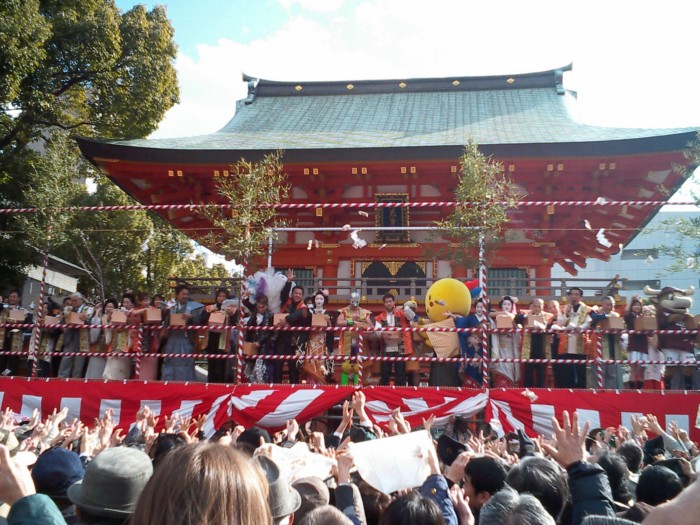
。
Behind this enjoyable holiday is a lot of complicated history and religion. So let’s unpack it a just little.
We’ll start with the name, because the name says everything. Setsu-bun. Setsu (節) means season, bun (分) is division. The break in the seasons. The end of Winter and the approach of Spring.
Yeah, it’s still snowing out and it feels like Winter will never end, but the ume plums will be blossoming soon, and then come the cherry trees.
It’s no coincidence that the Chinese (and Korean and Vietnamese) New Year is almost the same day as Setsubun. For most of its history, Japan used the Chinese lunar calendar and it still echoes through many Japanese customs.
Until Japan switched to the Western calendar in 1873, Setsubun was the day before New Year. Ah, now it’s starting to make sense. Setsubun was the day of cleaning and preparations to start a fresh new year.
In nearly every culture, New Years is not only the time to clean the house but the time to clean up personal affairs. We try to leave behind everything that went wrong during the old year and pray for health and prosperity in the new one.
Even though we no longer celebrate New Years now in Japan, we still pray today for a year of Oni-less good fortune.
So pick up your soybeans and throw them out the door. Oni wa soto! Fuku wa uchi!
Here’s wishing everyone a year of great fuku.
g
g
.
『Learn Japan Deeply with DC!』
Writer: DC Palter
Read DC’s Stories More at Japonica Publication ( medium.com/japonica-publication )
(2/4/2022)


